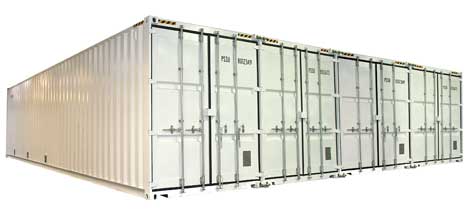Cannon, Stulz Collab on Modular Data Center for Government ClientCannon, Stulz Collab on Modular Data Center for Government Client
Existing modular solution modified to offer chiller-less option

Cannon Technologies, a U.K. data center vendor, has modified one of its modular data center products for a U.K. government customer, integrating it with a cooling system by Stulz, a German data center cooling supplier.
Modular data centers are used to deploy data center capacity quickly. Some users, such as military organizations, also want to be able to move a data center from place to place, which is the use case that made the modification necessary.
Modular data center solutions are prefabricated at a factory and shipped to the customer’s site for quick installation, but many of them, including Cannon’s, need to be plugged into a chiller plant to get chilled water for their cooling systems. The government customer wanted a chiller-less data center, however.
Stulz designed its Wall-Air Evolution direct expansion cooling unit for telecommunications containers, which are self-sufficient boxes of servers placed in remote areas. This made it a good fit for Cannon’s solution.
The combined solution is a data center that consists of multiple modules, and each module has a Wall-Air Evolution unit that can be taken off and placed inside for shipping and storage.
A single unit can provide up to 15kW of cooling capacity, and 16 can provide more than 200kW in N+1 configuration.
The Stulz unit pushes cold air at a low flow to the floor of the module, creating a “pool” of cold air, which server fans pull through the server. When outside air is cold enough, the system reduces reliance on DX cooling.
The modified version of the modular data center is available to other customers as well.
“Having exceeded all expectations, the Wall-Air Evolution units are now being deployed worldwide in the TMDC [Transportable Modular Data Center] and T4 Data Campus modular data center systems,” Mark Awdas, head of engineering at Cannon, said in a statement.
Read more about:
EuropeAbout the Author
You May Also Like







